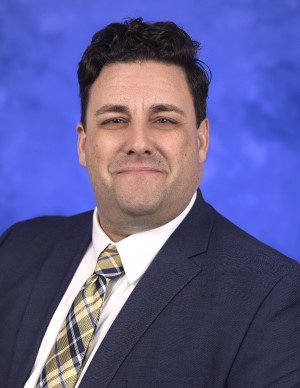American Psychological Association Division 50

I am frequently reminded of how important it is to be persistent and tenacious as an early career academic. I was most recently reminded of these qualities as I reflect on the process of writing, submitting, and being awarded a grant. In May of 2023, I received my first federal award, an R21. It was a wonderful moment to be sure, but the happiness that moment belies the amount of time and effort it took to get there. There’s no question in my mind that persistence and tenacity were critical ingredients in the process to getting funded.
I estimate that it took 5 years from the inception of the idea for this grant to the time that it was funded. I starting exploring the idea in the fall of 2018. I can’t tell you how many versions of the specific aims page I iterated through by the time I started seeking feedback from my mentors in the spring of 2019. My mentors read and commented on dozens of drafts of the specific aims page. Late in 2019, we sought feedback from the program officer, which, of course, necessitated more revisions.
In 2020, I was finally ready to start working on the rest of the grant. It took until October of 2021—and dozens more rounds of feedback and drafts—before the grant was actually submitted for review. (On a side note, I get asked periodically if COVID delayed the grant. It did, but not by much. I think it’s fair to say that COVID delayed the submission by one cycle.)
Since the grant was funded, I’ve been reflecting on why I decided to stick with it. A few reasons come to mind. For one, I am genuinely excited about the research—and have been the entire time I was writing the grant. I’m excited to see what insights about human behavior emerge from the data. I can’t wait for when it’s time to analyze the data and publish it. I also find that I’m excited by the challenges of research. I admit that recruiting is dauting, but I’m energized by the challenge and buoyed by the resources of a supportive institution.
I am also equally excited about the next grant—the one that’s going to come into focus because of this grant. I have already starting outlining the structure of that grant now that I have some insight in to how long the process takes. The aims of that grant will crystalize as the preliminary data from my current grant come in.
It is my hope that by being transparent about how long it took to secure my first grant helps others keep the timeline in perspective. In my case, persistence and tenacity gave way to feeling excited and energized. I find myself thinking about new research questions that will emerge from this work and brainstorming ideas for new grants. These will form the seeds of future grants. And, ultimately, it’s the cumulative work from this line of research that will inform intervention development and benefit people trying to change an addictive behavior.

Resources are available for those struggling with addiction and numerous effective treatments exist. Whether you are looking for help for yourself or a loved one, we encourage you to seek out help.